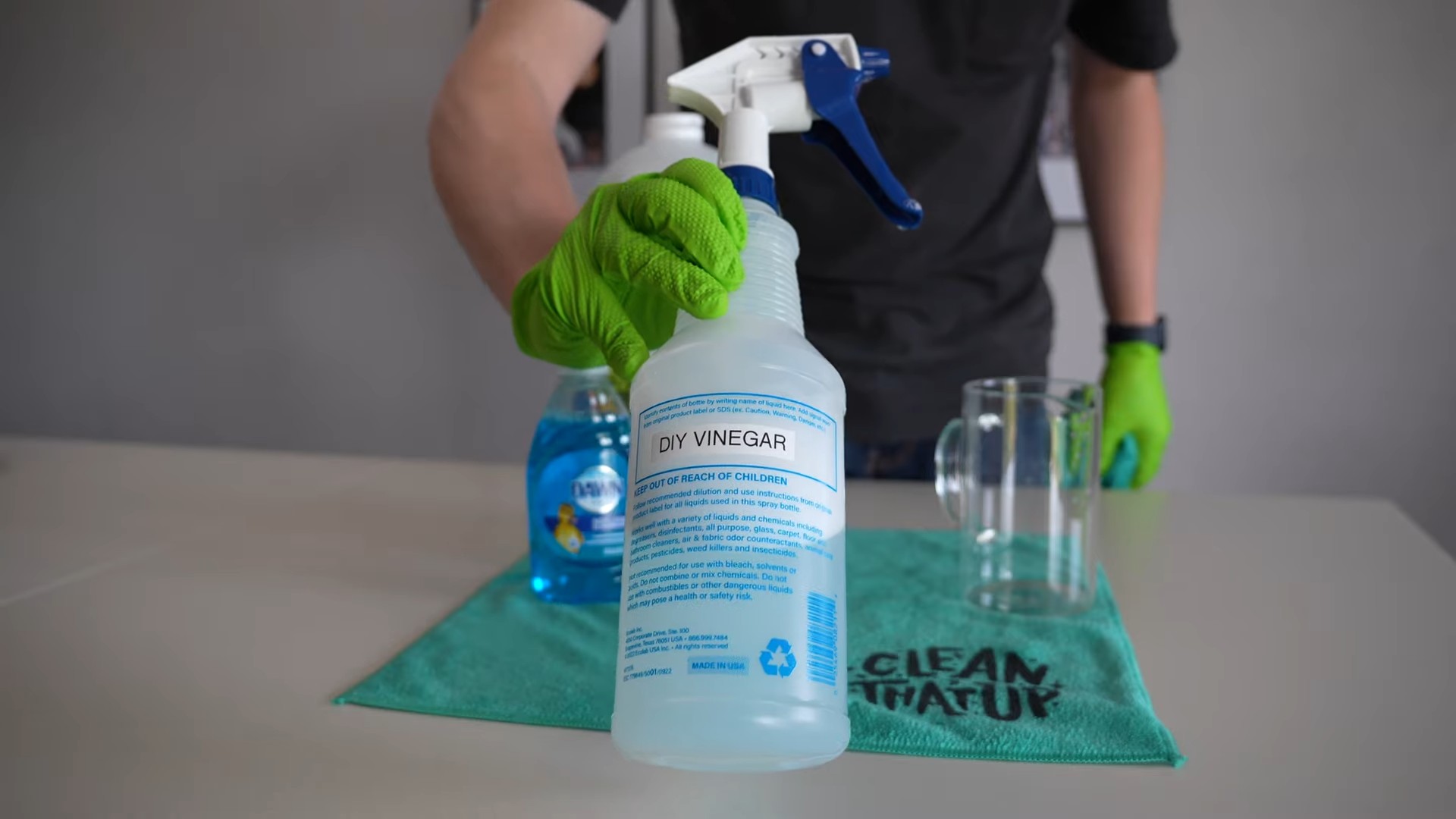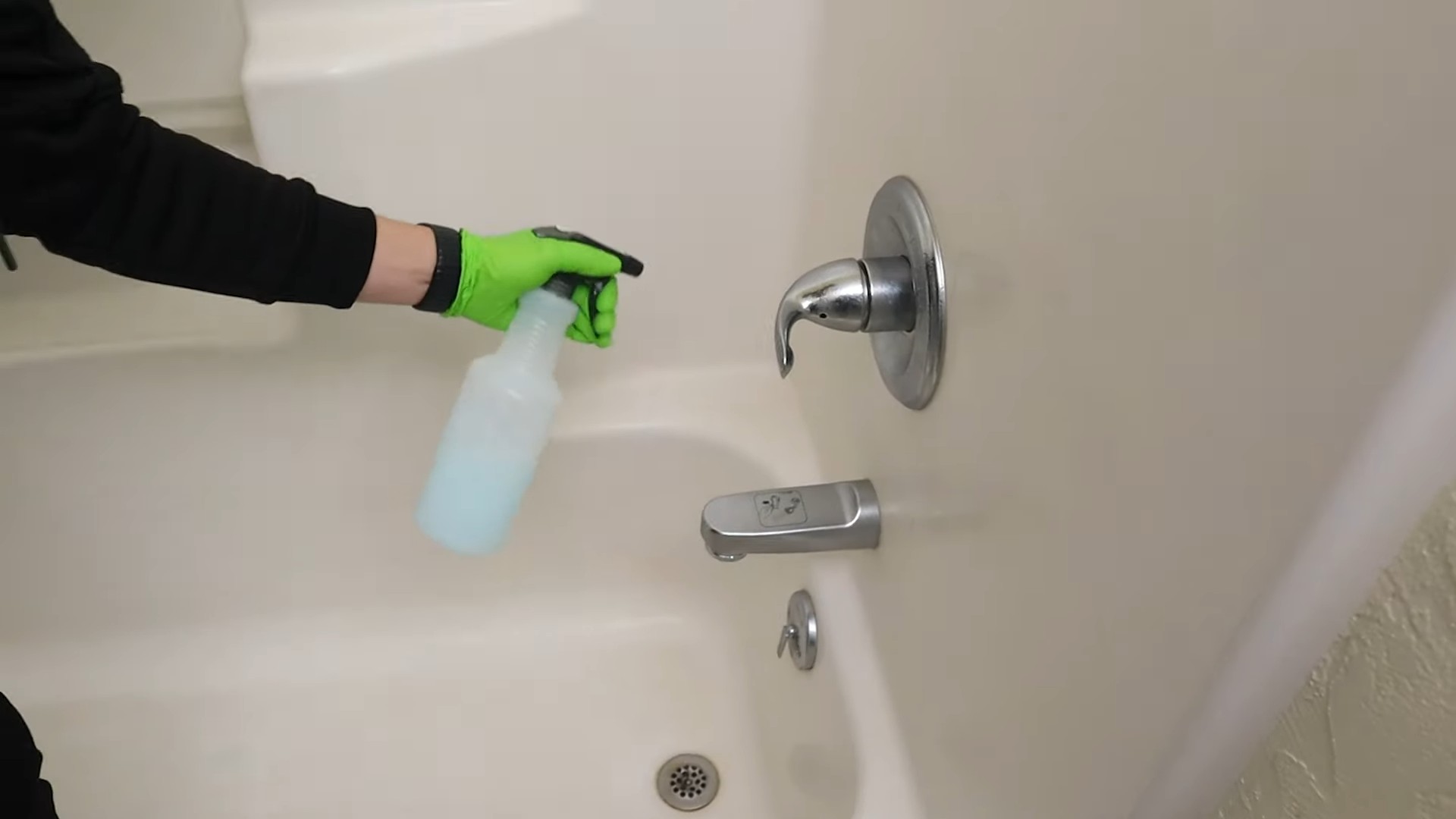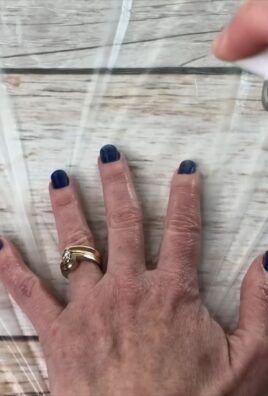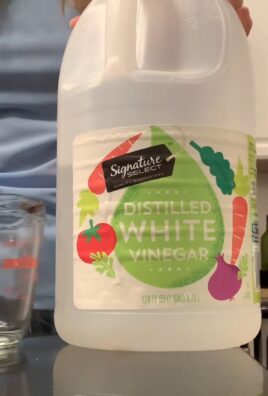Vinegar Uses and Benefits: Unlock the Hidden Potential in Your Pantry!
Have you ever looked at that bottle of vinegar sitting in your pantry and wondered if it could do more than just add a tangy kick to your salad dressing? I know I have! For centuries, vinegar has been a staple in kitchens and homes around the world, dating back to ancient civilizations who used it for everything from preserving food to medicinal purposes. Think of it as a time-tested, all-natural wonder liquid!
But beyond its culinary applications, vinegar boasts a surprising array of uses and benefits that can simplify your life and save you money. In today’s world, where we’re all looking for eco-friendly and budget-conscious solutions, understanding the power of vinegar uses and benefits is more relevant than ever. From cleaning hacks that will leave your home sparkling to health remedies that can soothe minor ailments, this humble ingredient is a true multi-tasker.
This DIY guide is your key to unlocking the full potential of vinegar. I’m going to share some of my favorite tips and tricks that will transform the way you think about this everyday essential. Get ready to discover how vinegar uses and benefits can revolutionize your cleaning routine, enhance your beauty regimen, and even improve your garden! Let’s dive in and explore the amazing possibilities!

Unlocking the Magic of Vinegar: More Than Just a Salad Dressing!
Hey there, fellow DIY enthusiasts! I’m about to let you in on a little secret: vinegar is a powerhouse ingredient that goes way beyond just adding a zing to your salads. Seriously, this stuff is like liquid gold when it comes to cleaning, beauty, and even some surprising health hacks. I’ve been experimenting with vinegar for years, and I’m constantly amazed by its versatility. So, buckle up, because I’m going to share some of my favorite DIY tricks using this amazing pantry staple.
Cleaning Powerhouse: Vinegar to the Rescue!
Vinegar is a natural, non-toxic cleaner that can tackle a surprising number of household chores. Forget those harsh chemicals – vinegar is your new best friend!
Descaling Your Kettle with Vinegar
Hard water got your kettle looking a little worse for wear? Don’t worry, vinegar’s got your back!
1. Prepare the Solution: Fill your kettle with equal parts white vinegar and water. The amount will depend on the size of your kettle, but make sure the solution covers the scale buildup.
2. Boil and Soak: Bring the mixture to a boil, then turn off the kettle and let it sit for at least an hour. For really stubborn scale, you can let it soak overnight.
3. Rinse Thoroughly: Pour out the vinegar solution and rinse the kettle several times with fresh water. Make sure you get rid of any lingering vinegar smell.
4. Boil Again (Optional): To be extra sure, boil a kettle full of fresh water and discard it. This will help eliminate any remaining vinegar taste or odor.
Cleaning Your Microwave with Vinegar
Microwave looking a little splattered? Vinegar to the rescue! This is one of my favorite quick cleaning hacks.
1. Vinegar Steam Clean: In a microwave-safe bowl, combine 1 cup of water and 2 tablespoons of white vinegar.
2. Microwave for 5 Minutes: Place the bowl in the microwave and heat on high for 5 minutes. The steam will loosen the grime and splatters.
3. Wipe Clean: Carefully remove the bowl (it will be hot!) and wipe down the inside of the microwave with a clean cloth or sponge. The loosened grime should come off easily.
4. Stubborn Spots: For any stubborn spots, dip your cloth or sponge in the vinegar water and scrub gently.
Freshening Up Your Dishwasher with Vinegar
Did you know you can use vinegar to keep your dishwasher sparkling clean and odor-free? It’s a simple and effective way to maintain your appliance.
1. Empty Dishwasher: Make sure your dishwasher is completely empty.
2. Vinegar Rinse: Place a dishwasher-safe cup or bowl filled with 1 cup of white vinegar on the top rack of your dishwasher.
3. Run a Cycle: Run a normal wash cycle on high heat. The vinegar will help to dissolve mineral deposits and remove any lingering odors.
4. Repeat Monthly: I recommend doing this once a month to keep your dishwasher in tip-top shape.
Cleaning Showerheads with Vinegar
Mineral buildup can clog your showerhead and reduce water pressure. Vinegar can dissolve those deposits and restore your showerhead to its former glory.
1. Vinegar Bath: Fill a plastic bag with white vinegar.
2. Secure the Bag: Place the bag over the showerhead, ensuring the showerhead is fully submerged in the vinegar. Secure the bag with a rubber band or twist tie.
3. Soak Overnight: Let the showerhead soak in the vinegar overnight.
4. Remove and Rinse: Remove the bag and run the shower for a few minutes to flush out any remaining vinegar and dissolved mineral deposits.
5. Stubborn Clogs: If you still have some clogs, use an old toothbrush to scrub away any remaining residue.
Beauty Boost: Vinegar for Skin and Hair
Believe it or not, vinegar can also be a fantastic addition to your beauty routine. Just remember to dilute it properly, as it can be quite potent.
Apple Cider Vinegar Hair Rinse for Shine
This is one of my go-to hair treatments for adding shine and balancing the pH of my scalp.
1. Dilute the Vinegar: Mix 1-2 tablespoons of apple cider vinegar with 1 cup of water. The amount of vinegar you use will depend on your hair type. If you have oily hair, you can use a bit more vinegar.
2. Shampoo and Rinse: Shampoo your hair as usual and rinse thoroughly.
3. Apply the Rinse: Pour the apple cider vinegar rinse over your hair, making sure to saturate your scalp and strands.
4. Let it Sit: Let the rinse sit for 1-2 minutes.
5. Rinse Again: Rinse your hair thoroughly with cool water. The vinegar smell will dissipate as your hair dries.
6. Frequency: I usually do this once or twice a week for best results.
Vinegar Toner for Clear Skin
Vinegar can help to balance the pH of your skin and reduce acne breakouts.
1. Dilute the Vinegar: Mix 1 part apple cider vinegar with 2-3 parts water. Start with a higher water ratio if you have sensitive skin.
2. Patch Test: Before applying the toner to your entire face, do a patch test on a small area of your skin to make sure you don’t have any adverse reactions.
3. Apply with a Cotton Pad: Soak a cotton pad with the diluted vinegar solution and gently swipe it over your face, avoiding the eye area.
4. Moisturize: Follow up with your favorite moisturizer.
5. Frequency: I recommend using this toner once a day, preferably at night.
Foot Soak for Soft Feet
Give your feet some love with a relaxing vinegar foot soak. It can help to soften calluses and kill bacteria.
1. Prepare the Soak: Fill a basin with warm water and add 1 cup of white vinegar.
2. Soak Your Feet: Soak your feet in the solution for 15-20 minutes.
3. Exfoliate: After soaking, use a pumice stone or foot file to gently exfoliate any rough or calloused areas.
4. Moisturize: Rinse your feet with clean water and apply a generous amount of moisturizer.
Health Hacks: Vinegar for Wellness
While I’m not a doctor, I’ve found that vinegar can be a helpful addition to my overall wellness routine. Always consult with your healthcare provider before making any significant changes to your diet or health regimen.
Soothe a Sore Throat with Vinegar
A gargle with diluted vinegar can help to soothe a sore throat and kill bacteria.
1. Mix the Gargle: Combine 1 tablespoon of apple cider vinegar with 1 cup of warm water.
2. Gargle: Gargle with the solution for 30 seconds, then spit it out.
3. Repeat: Repeat this process several times a day as needed.
Relieve Sunburn with Vinegar
Vinegar can help to soothe sunburned skin and reduce inflammation.
1. Dilute the Vinegar: Mix equal parts white vinegar and cool water.
2. Apply to Sunburn: Gently apply the solution to the sunburned area using a clean cloth or cotton pad.
3. Repeat as Needed: Repeat this process several times a day as needed.
Digestive Aid with Apple Cider Vinegar
Some people find that taking a small amount of apple cider vinegar before meals can help to improve digestion.
1. Dilute the Vinegar: Mix 1-2 teaspoons of apple cider vinegar with 8 ounces of water.
2. Drink Before Meals: Drink the solution about 15-20 minutes before meals.
3. Listen to Your Body: If you experience any discomfort, reduce the amount of vinegar or discontinue use.
Important Considerations
* Dilution is Key: Always dilute vinegar before using it on your skin or consuming it. Undiluted vinegar can be irritating or even harmful.
* Patch Test: Before using vinegar on your skin, do a patch test on a small area to check for any allergic reactions.
* Type of Vinegar: White vinegar is best for cleaning, while apple cider vinegar is often preferred for beauty and health purposes.
* Smell: The smell of vinegar can be strong, but it usually dissipates quickly. If you’re sensitive to smells, you can add a few drops of essential oil to your vinegar solutions.
* Storage: Store vinegar in a cool, dark place.
So there you have it! A whole bunch of ways to use vinegar to make your life a little easier, cleaner, and healthier. I hope you found these tips helpful. Happy DIY-ing!

Conclusion
So, there you have it! Unlocking the full potential of vinegar goes far beyond just salad dressings and cleaning. This simple, readily available ingredient is a powerhouse of possibilities, offering a range of benefits that can truly transform your daily routines. From enhancing your beauty regimen to boosting your garden’s health, and even adding a surprising twist to your culinary creations, the versatility of vinegar is simply astounding.
Why is this DIY vinegar trick a must-try? Because it’s effective, affordable, and environmentally friendly. In a world increasingly concerned with sustainability and cost-effectiveness, vinegar stands out as a champion. It allows you to reduce your reliance on harsh chemicals and expensive commercial products, all while achieving impressive results. Plus, the satisfaction of creating something yourself, knowing exactly what ingredients are involved, is an added bonus.
Ready to take your vinegar game to the next level?
Consider these exciting variations to further personalize your experience:
* **Infused Vinegar for Cleaning:** Add citrus peels (lemon, orange, grapefruit) to your vinegar for a refreshing scent and extra cleaning power. Let it steep for a few weeks before straining and using.
* **Herbal Vinegar for Cooking:** Infuse vinegar with herbs like rosemary, thyme, or basil for a flavorful addition to salads, marinades, and sauces. Experiment with different combinations to create your signature blend.
* **Vinegar Hair Rinse with Essential Oils:** Add a few drops of your favorite essential oils (lavender, tea tree, rosemary) to your vinegar hair rinse for added benefits and a pleasant aroma. Remember to dilute properly!
* **Fruit-Infused Vinegar for Drinks:** Muddle fresh berries or fruits like peaches and plums into your vinegar for a refreshing and tangy drink base. Add sparkling water and a touch of sweetener for a delightful summer beverage.
We’ve explored just a fraction of the incredible vinegar uses and benefits available. The possibilities are truly endless, limited only by your imagination. Don’t be afraid to experiment and discover new ways to incorporate this versatile ingredient into your life.
Now, it’s your turn! We encourage you to try out these DIY vinegar tricks and share your experiences with us. What surprising uses have you discovered? What variations have you created? Let us know in the comments below! Your insights could inspire others to unlock the full potential of this amazing ingredient. We are eager to hear about your successes, your challenges, and your creative adaptations. Together, we can build a community of vinegar enthusiasts, sharing tips and tricks to make the most of this readily available resource. So, grab a bottle of vinegar and get started today! You might be surprised at what you discover.
Frequently Asked Questions (FAQ)
What type of vinegar is best for cleaning?
White distilled vinegar is generally considered the best type of vinegar for cleaning. It’s inexpensive, readily available, and has a high acidity level, making it effective at killing bacteria, mold, and mildew. Avoid using colored vinegars, such as apple cider vinegar, on light-colored surfaces, as they may stain. While apple cider vinegar can be used for some cleaning tasks, white distilled vinegar is the workhorse for most household cleaning needs.
Can I use vinegar on all surfaces?
No, vinegar should not be used on all surfaces. Avoid using it on natural stone surfaces like granite, marble, and quartz, as the acidity can etch and damage them. It’s also best to avoid using vinegar on waxed wood furniture, as it can strip the wax finish. Be cautious when using vinegar on electronics, as it can damage sensitive components. Always test vinegar in an inconspicuous area before applying it to a larger surface.
How do I dilute vinegar for cleaning?
The dilution ratio for vinegar depends on the cleaning task. For general cleaning, a 50/50 solution of vinegar and water is usually sufficient. For tougher stains or mildew, you can use a stronger solution, such as two parts vinegar to one part water. For delicate surfaces, use a weaker solution, such as one part vinegar to two parts water. Always err on the side of caution and start with a weaker solution, increasing the concentration as needed.
Is vinegar safe to use around pets and children?
Vinegar is generally considered safe to use around pets and children, but it’s important to take precautions. While vinegar is non-toxic, the strong smell can be irritating to some animals and children. Ensure adequate ventilation when using vinegar for cleaning. Keep vinegar solutions out of reach of children and pets. If your pet or child ingests vinegar, it may cause mild stomach upset, but it’s unlikely to be serious. If you have any concerns, consult with your veterinarian or pediatrician.
Can vinegar be used to kill weeds?
Yes, vinegar can be used to kill weeds. Acetic acid, the active ingredient in vinegar, acts as a desiccant, drying out the weed’s leaves and stems. Use a horticultural vinegar with a higher acetic acid concentration (around 20%) for best results. Spray the vinegar directly onto the weeds, avoiding contact with desirable plants. Be aware that vinegar will kill any plant it comes into contact with, so use it carefully. You may need to reapply vinegar several times to completely kill stubborn weeds.
What are the benefits of using vinegar in my hair?
Using vinegar, particularly apple cider vinegar, in your hair can offer several benefits. It can help to balance the pH level of your scalp, which can reduce dandruff and itchiness. Vinegar can also help to remove product buildup, leaving your hair feeling cleaner and shinier. It can also help to smooth the hair cuticle, reducing frizz and making your hair more manageable. Always dilute vinegar with water before using it on your hair to avoid irritation. A common dilution ratio is 1-2 tablespoons of vinegar per cup of water.
Can vinegar help with skin problems?
Vinegar, especially apple cider vinegar, has been used traditionally to treat various skin problems. Its antibacterial and antifungal properties may help with conditions like acne and eczema. However, it’s crucial to dilute vinegar properly before applying it to your skin, as undiluted vinegar can cause irritation and burns. A common dilution ratio is 1 part vinegar to 3 parts water. Always test a small area of skin before applying vinegar to a larger area. If you have sensitive skin or a serious skin condition, consult with a dermatologist before using vinegar on your skin.
How can I use vinegar in my garden?
Vinegar has several uses in the garden. As mentioned earlier, it can be used to kill weeds. It can also be used to acidify the soil for acid-loving plants like blueberries and azaleas. Dilute vinegar with water and pour it around the base of the plants. Vinegar can also be used to clean garden tools and pots. Soak the tools in a vinegar solution to remove rust and dirt. Vinegar can also be used to deter pests like ants and slugs. Spray a vinegar solution around the perimeter of your garden to keep pests away.
What are some surprising culinary uses for vinegar?
Beyond salad dressings, vinegar can be used in a variety of surprising culinary ways. It can be used to tenderize meat, add a tangy flavor to sauces and soups, and even pickle vegetables. A splash of vinegar can brighten up the flavor of a dish and balance out sweetness. Vinegar can also be used to make shrubs, a type of fruit-infused vinegar syrup that can be used in cocktails and other beverages. Experiment with different types of vinegar and flavors to discover new culinary possibilities.
How does vinegar help with digestion?
Some people believe that consuming vinegar, particularly apple cider vinegar, can aid digestion. The acetic acid in vinegar may help to increase stomach acid production, which can improve the breakdown of food. It may also help to regulate blood sugar levels, which can prevent cravings and overeating. However, more research is needed to confirm these benefits. If you’re considering using vinegar to aid digestion, start with a small amount and dilute it with water. It’s also important to consult with your doctor before making any significant changes to your diet.




Leave a Comment